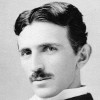“ A man often becomes a villain the moment he begins, even in his own heart, to chicane in this manner. The moment he thinks of departing from the most staunch and positive adherence to what those inviolable precepts prescribe to him, he is no longer to be trusted, and no man can say what degree of guilt he may not arrive at. ”
Adam Smith, The Theory of Moral Sentiments (1759). copy citation
| Author | Adam Smith |
|---|---|
| Source | The Theory of Moral Sentiments |
| Topic | guilt trust |
| Date | 1759 |
| Language | English |
| Reference | |
| Note | |
| Weblink | https://en.wikisource.org/wiki/The_Theory_of_Moral_Sentiments |
Context
“Though the end of the rules of justice be, to hinder us from hurting our neighbour, it may frequently be a crime to violate them, though we could pretend, with some pretext of reason, that this particular violation could do no hurt. A man often becomes a villain the moment he begins, even in his own heart, to chicane in this manner. The moment he thinks of departing from the most staunch and positive adherence to what those inviolable precepts prescribe to him, he is no longer to be trusted, and no man can say what degree of guilt he may not arrive at. The thief imagines he does no evil, when he steals from the rich, what he supposes they may easily want, and what possibly they may never even know has been stolen from them. The adulterer imagines he does no evil, when he corrupts the wife of his friend, provided he covers his intrigue from the suspicion of the husband, and does not disturb the peace of the family.”
source



